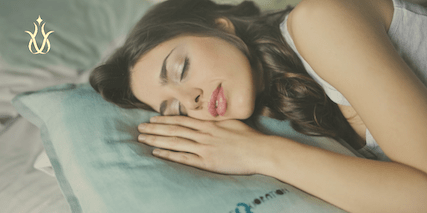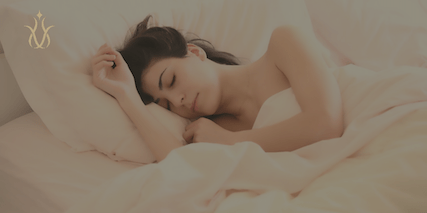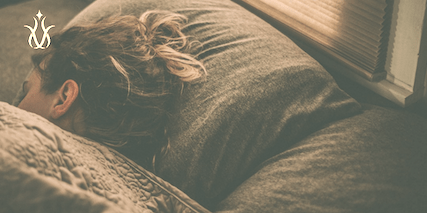Unlock the secrets of your sleep patterns with our ultimate guide. Understanding the intricacies of sleep cycles—REM and non-REM stages—can transform your health and boost your daily productivity. This article delves into the mechanisms that regulate sleep, explores common disruptions that affect sleep quality, and provides practical advice on monitoring your sleep patterns using the latest technology and apps. Additionally, gain insights into how certain lifestyle choices impact your nightly rest and what you can do to achieve more restful and restorative sleep.
Whether you’re struggling with sleep issues or simply want to optimize your slumber, our guide offers all the tools you need to better understand and improve your sleep.
What is Sleep?
Sleep is a naturally recurring state of rest in which consciousness and voluntary movements are reduced. It is a vital physiological process that allows the body and mind to rest, recover, and restore themselves. During sleep, the brain undergoes various stages and cycles characterised by distinct patterns of brain waves.
There are two main types of sleep: rapid eye movement (REM) sleep and non-rapid eye movement (NREM) sleep. NREM sleep is further divided into three stages: N1, N2, and N3. Each stage of sleep serves different functions and is associated with specific brain activity and physiological changes.
Sleep plays a crucial role in numerous aspects of our health and well-being. It is involved in memory consolidation, learning, emotional regulation, immune function, hormone regulation, and overall physical and mental restoration. Adequate sleep is essential for optimal cognitive function, mood stability, immune system strength, and overall quality of life.
An internal biological clock regulates the sleep-wake cycle called the circadian rhythm, which is influenced by external cues such as light and darkness. Disruptions to this natural rhythm, such as jet lag, shift work, or irregular sleep patterns, can lead to sleep disturbances and negatively affect health.
What Causes Sleep?
Sleep is a complex process influenced by various factors. The exact causes of sleep are not fully understood, but several key factors contribute to the initiation and regulation of sleep:
Circadian Rhythm: The internal biological clock, known as the circadian rhythm, plays a crucial role in regulating sleep-wake cycles. This 24-hour rhythm is influenced by external cues, such as daylight and darkness, and helps to synchronise sleep patterns with the natural day-night cycle.
Neurotransmitters: Different neurotransmitters in the brain are involved in the regulation of sleep. For example, the hormone melatonin, produced by the pineal gland in response to darkness, helps induce drowsiness and promote sleep. Adenosine, a chemical that accumulates in the brain throughout the day, builds up sleep pressure and promotes sleep initiation.
Sleep-Wake Homeostasis: The sleep-wake homeostatic process regulates the balance between sleep and wakefulness. It ensures that the longer you are awake, the greater your need for sleep becomes. Adenosine, as mentioned earlier, is one of the factors involved in this process. When adenosine levels increase during wakefulness, it contributes to the drive for sleep.
Brain Structures: Specific brain structures and regions are involved in the regulation of sleep. The hypothalamus, for example, contains the suprachiasmatic nucleus (SCN), which is responsible for controlling the circadian rhythm. The brainstem, thalamus, and basal forebrain also play crucial roles in sleep regulation.
Environmental Factors: Environmental factors can influence sleep. Light exposure, noise levels, temperature, and comfort of the sleep environment can all impact the quality and duration of sleep.
Psychological and Behavioural Factors: Psychological and behavioural factors can affect sleep. Stress, anxiety, depression, and certain lifestyle habits (e.g., irregular sleep schedules, excessive caffeine intake, and use of electronic devices before bed) can disrupt sleep patterns.
It’s important to note that the causes of sleep are multifactorial, and individual variations exist. Sleep is a dynamic process influenced by a combination of biological, environmental, and behavioural factors. Understanding these factors can help promote healthy sleep habits and address any underlying issues that may impact sleep quality.

How Many Hours Sleep Do I Need?
The amount of sleep needed varies depending on age, individual differences, and lifestyle factors. The National Sleep Foundation provides general guidelines for recommended sleep durations based on age groups:
Newborns (0-3 months): 14-17 hours of sleep daily, including naps.
Infants (4-11 months): 12-15 hours of sleep per day, including naps.
Toddlers (1-2 years): 11-14 hours of sleep daily, including naps.
Preschoolers (3-5 years): 10-13 hours of sleep daily, including naps.
School-age children (6-13 years): 9-11 hours of sleep daily.
Teenagers (14-17 years): 8-10 hours of sleep daily.
Adults (18-64 years): 7-9 hours of sleep per day.
Older adults (65+ years): 7-8 hours of sleep per day.
It’s important to note that these are general recommendations, and individual sleep needs may vary. Some people may function well with slightly more or less sleep than the average range. Factors such as health, activity level, stress, and sleep quality can also influence the amount of sleep needed.
Paying attention to how you feel during the day is helpful in determining your optimal sleep duration. If you consistently feel well-rested, alert, and have good energy levels, you will likely get enough sleep. On the other hand, if you experience excessive daytime sleepiness, difficulty concentrating, or fatigue, it may indicate that you need more sleep.
Why is Sleep Important?
Sleep is incredibly important for overall health and well-being. Here are some reasons why sleep is essential:
Rest and Restoration: Sleep allows the body to rest and recover. During sleep, the body repairs tissues, restores energy, and strengthens the immune system. Adequate sleep is crucial for physical recovery and maintenance.
Cognitive Function: Sleep plays a vital role in cognitive function and mental processes. It helps consolidate and organize memories, enhances learning, promotes creativity, and improves problem-solving abilities. Sufficient sleep is essential for optimal cognitive performance, attention, and concentration.
Emotional Well-being: Sleep has a profound impact on emotional well-being. A lack of sleep can contribute to increased irritability, mood swings, decreased tolerance for stress, and reduced emotional resilience. Conversely, quality sleep promotes emotional stability, positive mood, and overall mental health.
Physical Health: Adequate sleep is closely linked to good physical health. Chronic sleep deprivation has been associated with an increased risk of various health conditions, including obesity, diabetes, cardiovascular disease, and weakened immune function. Quality sleep supports a healthy metabolism, hormonal balance, and proper functioning of the body’s systems.
Energy and Productivity: Sleep is vital for sustaining energy levels and promoting productivity. A well-rested individual is more alert, focused, and able to perform daily tasks efficiently. Sufficient sleep enhances productivity, decision-making abilities, and overall performance in work, academics, and other activities.
Mental Health: Sleep and mental health are interconnected. Lack of sleep can contribute to the development or exacerbation of mental health conditions such as anxiety and depression. On the other hand, prioritizing sleep and maintaining healthy sleep patterns can positively impact mental health and contribute to overall well-being.
Safety: Sleep deprivation impairs judgment, reaction time, and coordination, increasing the risk of accidents and injuries. Adequate sleep is crucial for maintaining optimal levels of alertness and ensuring safety, especially while driving or operating machinery.

How Can I Sleep Better?
Improving sleep quality is essential for overall well-being. Here are some evidence-based tips to help you sleep better:
Stick to a consistent sleep schedule: Establish a regular sleep routine by going to bed and waking up at the same time every day, even on weekends. This helps regulate your body’s internal clock.
Create a conducive sleep environment: Ensure your bedroom is dark, quiet, and cool. Use curtains or blinds to block out light, wear earplugs or use white noise machines to mask disruptive sounds, and maintain a comfortable room temperature.
Limit exposure to electronic devices before bedtime: Screens emit blue light, which can interfere with sleep. Avoid using electronic devices like smartphones, tablets, and computers at least an hour before bed. Instead, relax like reading a book or taking a warm bath.
Establish a relaxing bedtime routine: Engage in relaxing activities before bed, such as practising meditation, deep breathing exercises, or gentle stretching. These activities can help signal your body that it’s time to unwind and prepare for sleep.
Avoid stimulating substances: Limit or avoid consuming caffeine, nicotine, and alcohol, especially close to bedtime. These substances can interfere with your sleep patterns and make falling or staying asleep harder.
Exercise regularly: Engaging in regular physical activity can promote better sleep. Aim for at least 30 minutes of moderate-intensity exercise most days of the week. However, avoid exercising too close to bedtime, as it can increase alertness and make it harder to fall asleep.
Create a comfortable sleep environment: Invest in a comfortable mattress, pillows, and bedding that suit your preferences. Make sure your sleeping environment is free from distractions and promotes relaxation.
Manage stress: Stress and anxiety can significantly impact sleep quality. Explore stress-reducing techniques such as mindfulness meditation, journaling, or talking to a trusted friend or therapist.
Avoid large meals and excessive fluid intake before bed: Eating a heavy meal or drinking excessive fluids before bedtime can lead to discomfort and disrupt your sleep. Opt for light, easily digestible snacks if you need to eat before bed.
Consider natural sleep aids: Certain herbal teas, such as chamomile or lavender, have calming properties that can promote relaxation and sleep. Consult with a healthcare professional before trying any sleep aids or supplements.
Remember, if you consistently struggle with sleep or have chronic insomnia, it’s important to consult with a healthcare professional for a comprehensive evaluation and personalised advice.
How Can I Fall Asleep Earlier?
Falling asleep earlier can be challenging, especially if you’re accustomed to a late bedtime. However, with a few adjustments to your routine and habits, you can gradually shift your sleep schedule to an earlier time. Here are some tips to help you fall asleep earlier:
Gradually adjust your bedtime: Instead of trying to go to bed several hours earlier all at once, make incremental changes.
Gradually move your bedtime 15-30 minutes earlier each night until you reach your desired sleep time.
Establish a consistent sleep schedule: Set a regular sleep schedule and stick to it, even on weekends. Going to bed and waking up at the same time every day helps regulate your body’s internal clock and makes it easier to fall asleep earlier.
Create a relaxing bedtime routine: Develop a soothing routine that prepares your mind and body for sleep. This can include activities like reading a book, taking a warm bath, practising relaxation techniques, or listening to calming music. Avoid stimulating activities or screens right before bed.
Manage your exposure to light: Expose yourself to bright natural light during the day, especially in the morning. This helps regulate your internal clock and promotes alertness. In the evening, dim the lights and limit your exposure to electronic devices that emit blue light, as it can interfere with your ability to fall asleep.
Limit caffeine and alcohol intake: Avoid consuming caffeinated beverages like coffee, tea, and energy drinks in the afternoon and evening. Caffeine can disrupt your sleep and make it harder to fall asleep earlier. Similarly, while alcohol may initially make you feel drowsy, it can negatively impact the quality of your sleep.
Create a sleep-friendly environment: Ensure your bedroom is cool, quiet, and dark. Use curtains or blinds to block out external light sources, use earplugs or a white noise machine to mask disruptive noises, and ensure your mattress and pillows are comfortable and supportive.
Engage in relaxation techniques: If you find it difficult to wind down and quiet your mind before bed, try relaxation techniques such as deep breathing exercises, progressive muscle relaxation, or meditation. These practices can help relax your body and promote sleepiness.
Avoid stimulating activities close to bedtime: Engaging in stimulating activities or intense exercise too close to bedtime can make it harder to fall asleep earlier. Try to finish your workouts and mentally stimulating activities at least a few hours before bed.
Manage stress and anxiety: High levels of stress and anxiety can interfere with your ability to fall asleep earlier. Explore stress management techniques such as mindfulness meditation, journaling, or talking to a trusted person about your concerns to help calm your mind before bed.
Consider consulting a healthcare professional: If you consistently struggle with falling asleep earlier or have persistent sleep difficulties, it may be helpful to consult a healthcare professional. They can provide further guidance and evaluate any underlying issues that may be affecting your sleep.

How Can I Stay Asleep Longer?
Staying asleep throughout the night is essential for getting the restorative sleep your body needs. If you struggle with waking up frequently or having difficulty staying asleep, here are some tips to help you stay asleep longer:
Establish a consistent sleep routine: Going to bed and waking up at the same time every day, even on weekends, helps regulate your body’s internal clock. Maintaining a consistent sleep schedule makes your body accustomed to a specific sleep-wake pattern, making it easier to stay asleep throughout the night.
Create a sleep-friendly environment: Make your bedroom a comfortable and conducive environment for sleep. Ensure your room is dark, quiet, and at a cool temperature. Use curtains or blinds to block out light, use earplugs or a white noise machine to mask disruptive noises, and ensure your mattress and pillows are comfortable and supportive.
Limit exposure to electronic devices before bed: The blue light emitted by electronic devices like smartphones, tablets, and computers can interfere with your sleep. Limit your exposure to these devices at least one hour before bedtime to allow your brain to prepare for sleep naturally. Instead, engage in relaxing activities such as reading a book or practising relaxation techniques.
Avoid stimulating substances: Stimulants like caffeine and nicotine can disrupt your sleep and make it harder to stay asleep. Limit your consumption of caffeinated beverages like coffee, tea, and energy drinks, especially in the afternoon and evening. Also, consider avoiding nicotine, as it is a stimulant that can interfere with sleep.
Manage stress and anxiety: Stress and anxiety can cause sleep disturbances and make it challenging to stay asleep. Incorporate stress management techniques into your daily routine, such as mindfulness meditation, deep breathing exercises, or journaling. If you find persistent stress or anxiety affecting your sleep, consider seeking professional help or counselling.
Create a bedtime routine: Establish a relaxing routine before bed to signal to your body that it’s time to wind down and prepare for sleep. Engage in calming activities such as taking a warm bath, practising gentle stretching or yoga, listening to soothing music, or reading a book. Consistency in your bedtime routine can help condition your body and mind for better sleep.
Exercise regularly: Regular physical activity can improve the quality and duration of your sleep. Engage in moderate-intensity exercise during the day, preferably several hours before bedtime. Avoid vigorous exercise close to bedtime, as it may stimulate your body and make it harder to fall asleep.
Avoid large meals and excessive fluids before bed: Consuming heavy meals or excessive fluids close to bedtime can lead to discomfort, indigestion, and frequent bathroom trips. Try to have your last meal or snack at least a few hours before bed and limit your fluid intake in the evening to minimise disruptions during sleep.
Address underlying sleep disorders: If you consistently struggle with staying asleep or have other sleep disorder symptoms like sleep apnea or restless leg syndrome, it’s important to seek medical evaluation and treatment. Identifying and addressing any underlying sleep disorders can significantly improve your ability to stay asleep.
Consider relaxation techniques: If you wake up in the middle of the night and struggle to fall back asleep, relaxation techniques can be helpful. Deep breathing exercises, progressive muscle relaxation, or guided imagery can promote relaxation and help you drift back to sleep.
What is Sleep Paralysis?
Sleep paralysis is a phenomenon that occurs when a person temporarily experiences an inability to move or speak while falling asleep or upon waking. This can last a few seconds to a couple of minutes. It is often associated with frightening experiences, such as a sense of suffocation, decreased heart rate, or hallucinations.
Sleep paralysis occurs during rapid eye movement (REM) sleep, which is the stage where most dreaming occurs. During REM sleep, your brain is very active, and dreaming is more vivid. One theory is that sleep paralysis results from the brain transitioning between stages of wakefulness and sleep, and it’s most common in people who have irregular sleeping patterns or sleep disorders like narcolepsy.
While sleep paralysis can be a terrifying experience, it’s generally considered harmless. However, if you experience sleep paralysis frequently and it causes you distress or it leads to significant sleep disturbance, it would be a good idea to consult with a healthcare provider or a sleep specialist. They might help you determine if any underlying conditions contribute to sleep paralysis and how it can be managed.
What is the Treatment for Sleep Paralysis?
The treatment for sleep paralysis often begins with addressing any underlying conditions or factors that may contribute to its occurrence. Here are some common approaches:
1. Improve Sleep Hygiene: Maintaining a regular sleep schedule can be beneficial. This includes going to bed and waking up at the same time each day, even on weekends. Creating a comfortable sleep environment and avoiding caffeine, alcohol, and large meals close to bedtime can also improve sleep quality.
2. Lifestyle Modifications: Regular exercise, stress management techniques, and a healthy diet can contribute to better sleep. However, strenuous workouts should be avoided close to bedtime as they may interfere with sleep.
3. Treat Underlying Sleep Disorders: If sleep paralysis is associated with a sleep disorder like narcolepsy or sleep apnea, treating the primary disorder can help reduce the frequency of sleep paralysis.
4. Cognitive Behavioral Therapy (CBT): CBT can help manage any anxiety or fear that comes from experiencing sleep paralysis. It can also help with insomnia.
5. Medication: Certain types of antidepressants that regulate sleep patterns may be used in some cases, but this is typically reserved for severe cases or when other symptoms, like excessive daytime sleepiness, are present.
If you regularly experience sleep paralysis, it’s important to discuss this with a healthcare provider or a sleep specialist to determine the best treatment approach.
What are the Best Sleep Apps and Sleep Trackers to Help Me Sleep Better?
When it comes to sleep apps and sleep trackers, there are several top-rated options available that can help you track and improve your sleep. Here are some of the best sleep apps and sleep trackers:
Sleep Cycle:
Sleep Cycle is a popular sleep app that uses your phone’s accelerometer to monitor your sleep patterns and wake you up during your lightest sleep phase. It provides detailed sleep analysis and offers features like sleep notes, soundscapes, and a smart alarm clock.
Headspace:
While primarily known as a meditation app, Headspace also offers sleep-focused content. It includes guided sleep meditations, wind-down exercises, and sleep music to help you relax and fall asleep more easily.
Fitbit:
Fitbit is a well-known fitness tracker brand that also offers sleep-tracking features. Their devices track your sleep patterns, including sleep stages (light, deep, REM), duration, and quality. The accompanying app provides insights into your sleep habits and offers personalised sleep recommendations.
SleepScore:
SleepScore is a comprehensive sleep-tracking app that uses sound analysis to monitor your sleep. It tracks your sleep duration and quality and provides a daily sleep score. The app also offers personalised sleep advice and tips for improving your sleep.
Sleep as Android:
Sleep as Android is an app specifically designed for Android devices. It tracks your sleep patterns using various sensors on your phone or wearable devices. It offers features like smart alarms, sleep-tracking graphs, snoring detection, and integration with other smart home devices.
It’s worth noting that while these sleep apps and trackers can provide valuable insights and tools for sleep improvement, they should be used as supportive tools alongside healthy sleep habits and lifestyle adjustments. It’s always recommended to consult with a healthcare professional for personalised advice on improving your sleep.
Resources:
Watson NF et al (2015). Recommended Amount of Sleep for a Healthy Adult: A Joint Consensus Statement of the American Academy of Sleep Medicine and Sleep Research Society.
Troynikov O et al (2018). Sleep environments and sleep physiology: A review.
Grandner MA, Fernandez FX (2021). The translational neuroscience of sleep: A contextual framework.
Baranwal N et al (2023). Sleep physiology, pathophysiology, and sleep hygiene.
National Sleep Foundation: “National Sleep Foundation: “Healthy Sleep Tips”. Available at: https://www.sleepfoundation.org/
Mayo Clinic: “Sleep Tips: 7 Steps to Better Sleep”. Available at: https://www.mayoclinic.org/healthy-lifestyle/adult-health/in-depth
WebMD: “Sleep Disorders Resource Centre”. Available at: https://www.webmd.com
Disclaimer: This article is for informational purposes only and should not replace professional medical advice. If you have specific concerns or medical conditions, it is recommended to consult with a healthcare professional for personalised guidance and support.
Related Articles:
The Best Sleeping Position: Stomach vs Back vs Side
Wellness Escapes: The Best Luxury Wellness Retreats in the World
The Best Meditation Retreats in The World






